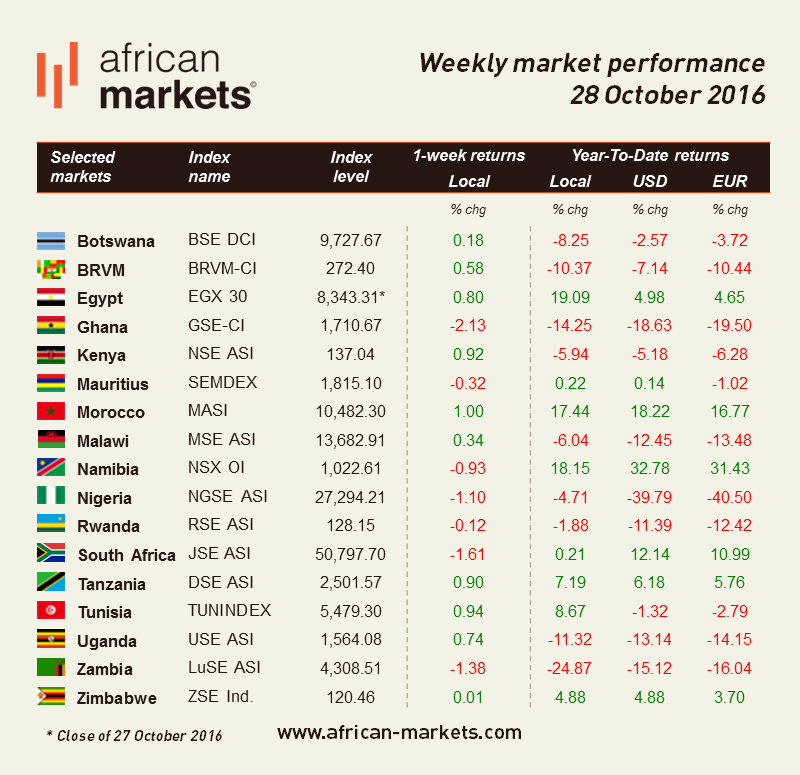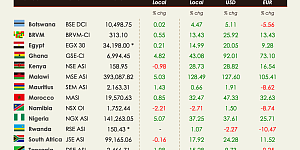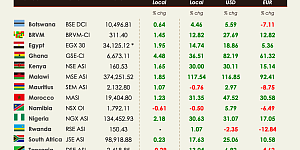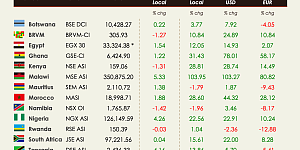In its bi-yearly report IMF cut its 2017 growth outlook for sub-Saharan Africa to 1.4% from 3% growth expected earlier because of commodity-exporting countries struggling with weak demand. Sub-Saharan Africa is witnessing its lowest growth in 20 years however some countries still expect to expand by 4% or more.
South-Africa is not one of these countries, IMF now expects the economy to expand 0.8% next year versus 1% previously anticipated. In his mid-term budget speech, Finance Minister Gordhan stated that South Africa is planning to increase taxes and reduce public spending. The government will plan to raise an additional 43bn rand over the next two years. On top of this, Gordhan reduced growth prospects until 2018 and forecasted a bigger deficit. This announcement comes as credit rating agencies are expected to review South Africa’s credit rating by the end of this year. The government expects a fiscal deficit of 3.4% this year which should reach 2.7% by 2019. The growth expectation was cut by 0.4% annually until 2018 when growth is expected to reach 2%. JSE ASI lost 1.61%.
NGSE ASI fell by 1.10%. President Buhari has asked the parliament to approve plans to borrow $30 bn abroad to fund infrastructure plans until 2018. In his letter, President Buhari mentions that the borrowing plans include the sale of Eurobonds worth $4.5 bn and a planned budget support of $3.5 bn. Buhari had already sent a draft budget for 2017 to parliament for approval, describing plans to spend a record 6.866 tn naira ($22.55 bn) intended to pull the country out of recession. The planned expenditure is up from this year's 6.06 tn naira budget and targets growth by funding infrastructure development to boost manufacturing, fight unemployment and limit pricy imports. The government has held discussions for some time with the World Bank, China and other institutions to fund a 2016 budget deficit of 2.2 tn naira but so far only the African Development Bank has publicly endorsed a planned loan of $1 bn.
EGX30 gained 0.80%. The Central Bank of Egypt (CBE) announced it will hold a regular weekly dollar sale for $120 million on Tuesday. This comes amidst growing speculations of currency devaluation as the gap between official exchange rates and the parallel market has widened. The CBE held the pound steady at EGP 8.78 per US dollar in last week’s sale, as per official data. There are growing signs of a currency devaluation in Egypt as the government speaks about painful necessary economic reforms as the Egyptian pound continued to plunge versus the dollar on the parallel market this week. On Tuesday, Egyptian President El-Sissi declared that Egyptians must stand the upcoming economic reforms. This statement was considered a clear sign regarding floating the pound. Moreover, the Prime Minister declared on the same day that the exchange rates must reflect the currency’s actual value, he also stressed that having two exchange rates in the market cannot continue.










































